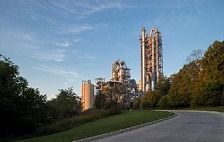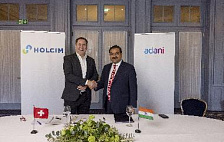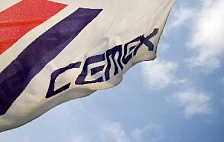The team behind an Israeli company that makes marine-friendly concrete for shoreline and offshore projects may about to win an international prize for innovation.
ECOncrete founder Ido Sella and late-co-founder Shimrit Perkol-Finkel have been nominated for the European Inventor Award 2022 for their development of their bio-enhanced material suitable for sustainable marine development projects.
One of the most prestigious innovation prizes in Europe, the competition was launched in 2006 by the European Patent Office (EPO) and honours both individuals and teams responsible for providing solutions to key challenges of our age. ECOncrete’s ‘concrete technology to encourage marine biodiversity’ was shortlisted by a panel of past winners.
Already used in more than 40 locations in ten countries, shorelines in Spain, Monaco, the Netherlands, Italy, San Diego and New York have benefited from the company’s product. It is suitable for applications including flood defences, waterfront infrastructure, and offshore foundations, and lists carbon sequestration, increased biodiversity and promotion of local species, and improved water quality among its environmental benefits.
ECOncrete admix. The material offers a 70% reduction in carbon footprint compared with traditional Portland varieties, with GGBS or fly ash cutting 60% and a further 10% coming directly from the admix itself, which is 92% carbon neutral and mainly made from byproducts and recycled materials.
The result is a material that is sealed, preventing toxins leaching out into water, and mimics natural rock formations with complex surface textures, in turn providing marine larvae with surfaces they can grab onto and begin developing ecosystems. Tubeworms, oysters and coral are among the types of life this can support, with ECOncrete able to incorporate elements such as tidepools, crevices and sheltered holes ideal for breeding.
‘Think about barnacles, oysters and corals that create their skeleton from taking calcium ions from the water and using dissolved CO2 to create calcium carbonate for their shells,’ ECOncrete CEO Ido Sella said. ‘When these sessile organisms settle on the concrete and encapsulate it with calcium carbonate they actually make it stronger. It was found that concrete covered by oysters can be 10 times stronger in terms of tensile strength than bare concrete.’
‘Through research and innovation, Sella and Perkol-Finkel have transformed a standard construction material into a shelter for marine life,’ EPO President António Campinos said. ‘As marine construction is a growing sector, this invention has the potential to make a wide impact and improve the industry’s environmental footprint on a global scale.’
A study in 2020 showed that 38% of CO2 emissions stem from the construction industry. At the time analysts predicted that the sector was unlikely to meet existing environmental targets.








